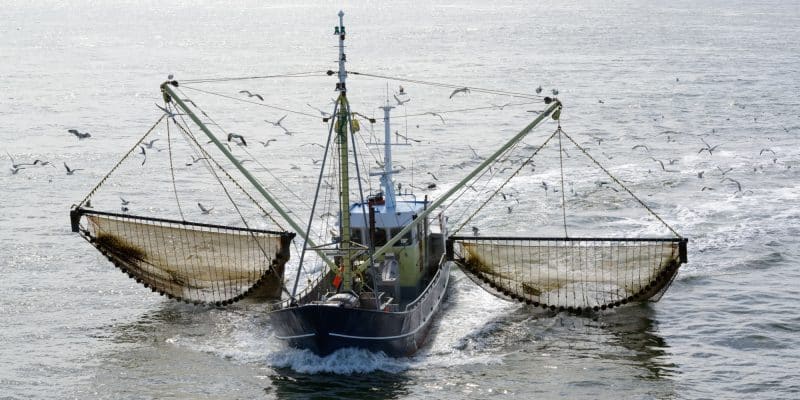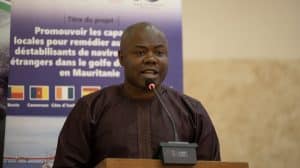On 7 May 2024, a workshop was held in Douala to examine the impact of deep-sea fishing on Cameroon. Organised by the African Marine Mammal Conservation Organization (AMMCO) in collaboration with CEMLAWS Africa and Cameroon's Ministry of Fisheries and Animal Industries, the event was an important step in understanding the challenges facing the country's fishing sector.
The project, funded by the US Embassy in Ghana, aims to promote transparency, accountability and local capacity to address the destabilising impacts of Foreign Distant Water Fishing Vessels (DWFVs) in the Gulf of Guinea and Mauritanian waters.
Discussions at the workshop revealed alarming data on the consequences of unregulated deep-sea fishing. On average, West Africa loses around 790,000 tonnes of fish a year to illegal, unreported and unregulated (IUU) fishing, resulting in economic losses of over 2 billion dollars a year.
Cameroon gets the “red card
Cameroon, in particular, has faced sanctions from the European Union (EU) for its unsatisfactory management of deep-sea fishing, receiving a “red card” for its failure to comply with international standards. These sanctions were preceded by a ‘yellow card’, highlighting the persistent challenges facing the country in terms of governance of marine resources.
A key aspect discussed at the workshop was the concept of ‘flags of convenience’, where foreign vessels are registered in a country without proper verification of their fishing history. This allows unscrupulous vessels to evade regulation and undermine efforts to conserve marine resources.
The urgent need to nationalise trawler owners
The participants also stressed the importance of encouraging local investment in the fisheries sector to ensure more sustainable and beneficial management of marine resources. “It is important to stress that the aim of the training was not to exclude foreign investors, but rather to encourage domestic investors to get involved in the fisheries sector. The potential is real, and I am convinced that the Cameroonian economy would benefit greatly from the increased participation of national investors in industrial fishing”, explains Aristide Takoukam Kamla, President of AMMCO.
Read also-GOLFE DE GUINÉE: les pêcheurs artisanaux accusent les chalutiers, de pêche INN
The workshop was a valuable opportunity to raise awareness of the impacts of distant water fishing and to discuss the measures needed to improve governance of the sector. It highlighted the importance of a collaborative approach between governments, civil society organisations and private stakeholders to ensure the sustainability and prosperity of Cameroon’s coastal communities.
Boris Ngounou









You must be logged in to post a comment.